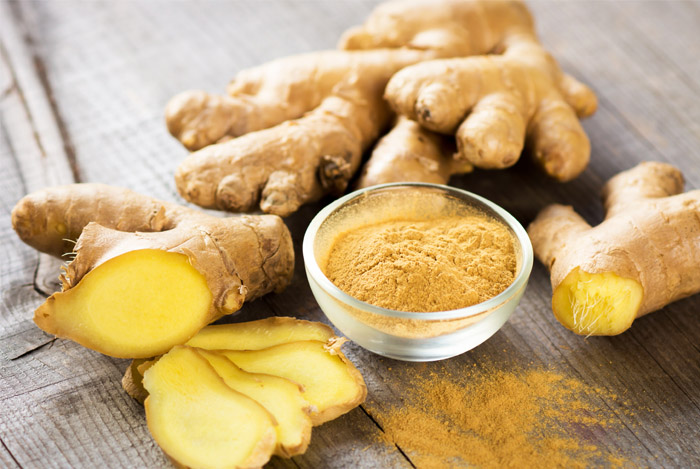
Ginger, a gnarled root with a distinctive hot pungent flavour, is among the most widely used and best studied of kitchen cures. Closely related to the spices turmeric and cardamom, ginger has been used medicinally and as a seasoning for at least 5,000 years. It is renowned worldwide for its ability to alleviate nausea, vomiting, morning sickness and other digestive complaints – conditions that aren’t always helped by modern drugs. And in the last few decades, the potential uses for ginger have extended far beyond the gut.
What’s it good for?
- arthritis
- bursitis and tendinitis
- cold and flu
- coughs
- headache
- heartburn
- high cholesterol
- hives
- indigestion
- irritable bowel syndrome
- itching
- menstrual problems
- migraines
- morning sickness
- nausea
- peptic ulcers
- toothache
- wind, bloating and flatulence
Whether you have an upset stomach or feel shivery and have a cold, ginger can help. You can take it as a tea, a capsule or crystallized in sugar. Or you can add it to food or simply munch gingernuts. Many healing herbs have to be taken in huge amounts to provide health benefits. Ginger is different because the amount you’d add to a curry or stir-fry can easily match or exceed the amount used in supplements.
Stomach soother
Ginger is among the most potent remedies for motion sickness as well as common-or-garden tummy upsets. In fact, some studies have shown that it works just as well as certain nausea-stopping drugs. In one famous piece of research, scientists strapped volunteers in rotating chairs and took them for a ride. Those given a pharmaceuticals anti-nausea medication lasted only about 41/2 minutes before begging to stop. Half of the people given ginger, on the other hand, lasted 6 minutes, with less nausea than the medicated group.
The chemical compounds that give ginger its zesty taste – mainly gingerol and shogaol – appear to reduce intestinal contractions, neutralize digestive acids and inhibit the ’vomiting centre’ in the brain. Doctors often recommended ginger to prevent nausea because it doesn’t cause drowsiness the way anti-nausea drugs can. It has even been used to lesson chemotherapy-included nausea and post-operative nausea.
Ginger is much better at preventing nausea than stopping it. If you’re susceptible to motion sickness, for instance, the time to take ginger is before you to get in the car or board a cross-channel ferry. Take about a ¼ teaspoon of powder ginger, 1g of ginger in capsule form or a 1cm slice of fresh root ginger at least 20 minutes before leaving.